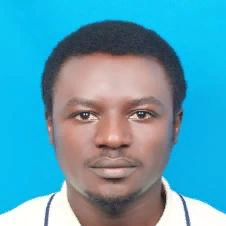International Journal of Engineering and Manufacturing (IJEM)
IJEM Vol. 10, No. 6, 8 Dec. 2020
Cover page and Table of Contents: PDF (size: 651KB)
Image Recognition Based Autonomous Driving: A Deep Learning Approach
Full Text (PDF, 651KB), PP.11-19
Views: 0 Downloads: 0
Author(s)
Index Terms
Autonomous vehicle, lane navigation, deep learning method, steering command, autonomous navigation.
Abstract
Autonomous vehicle (AV) is a broad field in artificial intelligence which has seen monumental growth in the past decade and this had a significant impact in bridging the gap between the capability the intelligence of human and the efficiency of machines. With millions of people losing their lives, or have being a victim of road traffic accidents. There is a need to find a suitable algorithm for a navigation system in an autonomous vehicle with the purpose of help mitigate the traffic rule violation that most human drivers make that lead leads to traffic accidents. With both researchers and enthusiasts developing several algorithms for AVs, this field has been split into several modules which continually broaden the scope of AV’s technology. In this paper, we focus on the lane navigation which has an important part of the AV movement on the road. Here lane decision making is optimized by using deep learning techniques in creating a Neural Network model that focuses on generating steering commands by taking an image the road mapped out with lane markings. The navigation aid is a front-facing camera mounted and images from the camera are used to compute steering commands. The end to end learning scheme was developed by Nvidia cooperation to train a model to compute steering command from a front-facing camera. The model does not focus on detecting the lane but only generating the appropriate command for steering AVs’ on the road. This focus on one objective of the model helps in maximizing the potential of better accuracy in lane navigation of our AVs. The modeled car navigates through the designed lanes accurately with the level of intelligence the car shows in maneuvering through the lanes shows this method is more suitable in lane navigation.
Cite This Paper
N. M. Tahir, U. I. Batureb, K. A. Abubakar, M. A. Baba, S. M. Yarima, " Image Recognition Based Autonomous Driving: A Deep Learning Approach ", International Journal of Engineering and Manufacturing (IJEM), Vol.10, No.6, pp.11-19, 2020. DOI: 10.5815/ijem.2020.06.02
Reference
[1]Jyoti Shokeen, Chhavi Rana, "An Application-oriented Review of Deep Learning in Recommender Systems", International Journal of Intelligent Systems and Applications(IJISA), Vol.11, No.5, pp.46-54, 2019. DOI: 10.5815/ijisa.2019.05.06
[2]Schmidhuber, Jürgen. "Deep learning in neural networks: An overview." Neural networks, Vol. 61, pp. 85-117, 2015.
[3]L. De Ambroggi, “Artificial Intelligence Systems for Autonomous Driving on the Rise, IHS Says”, IHS, June 2016, [online] Available: https://technology.informa.com/579746/artificial-intelligence-systems-for-autonomous-driving-on-the-rise-ihs-says. Retrieved 26 July 2020.
[4]Falcini, Fabio, Giuseppe Lami, and Alessandra Mitidieri Costanza. "Deep learning in automotive software." IEEE Software, vol. 34, no. 3, pp. 56-63, 2017.
[5]Fujiyoshi, Hironobu, Tsubasa Hirakawa, and Takayoshi Yamashita. "Deep learning-based image recognition for autonomous driving." IATSS Research, 2019.
[6]Huval, Brody, Tao Wang, Sameep Tandon, Jeff Kiske, Will Song, Joel Pazhayampallil, Mykhaylo Andriluka et al. "An empirical evaluation of deep learning on highway driving." arXiv preprint arXiv:1504.01716, 2015.
[7]Schmidhuber, Jürgen. "Deep learning in neural networks: An overview." Neural networks, vol. 61, pp. 85-117, 2015.
[8]Luckow, Andre, Matthew Cook, Nathan Ashcraft, Edwin Weill, Emil Djerekarov, and Bennie Vorster. "Deep learning in the automotive industry: Applications and tools." IEEE International Conference on Big Data (Big Data), pp. 3759-3768, 2016.
[9]Bojarski, Mariusz, Davide Del Testa, Daniel Dworakowski, Bernhard Firner, Beat Flepp, Prasoon Goyal, Lawrence D. Jackel et al. "End to end learning for self-driving cars." arXiv preprint arXiv:1604.07316, 2016.
[10]Lee, Unghui, Jiwon Jung, Seokwoo Jung, and David Hyunchul Shim. "Development of a self-driving car that can handle the adverse weather." International journal of automotive technology 19(1) pp. 191-197, 2018.
[11]Kim, Jinkyu, and John Canny. "Interpretable learning for self-driving cars by visualizing causal attention." Proceedings of the IEEE international conference on computer vision, pp. 2942-2950. 2017.
[12]Hidaka, Masatoshi, Yuichiro Kikura, Yoshitaka Ushiku, and Tatsuya Harada. "Webdnn: Fastest dnn execution framework on web browser." Proceedings of the 25th ACM international conference on Multimedia, pp. 1213-1216. 2017.
[13]Muhammad Aamir, Ziaur Rahman, Waheed Ahmed Abro, Muhammad Tahir, Syed Mustajar Ahmed, "An Optimized Architecture of Image Classification Using Convolutional Neural Network", International Journal of Image, Graphics and Signal Processing(IJIGSP), Vol.11, No.10, pp. 30-39, 2019.DOI: 10.5815/ijigsp.2019.10.05
[14]Priya Gupta, Nidhi Saxena, Meetika Sharma, Jagriti Tripathi,"Deep Neural Network for Human Face Recognition", International Journal of Engineering and Manufacturing(IJEM), Vol.8, No.1, pp.63-71, 2018.DOI: 10.5815/ijem.2018.01.06
[15]Pomerleau, Dean. "Rapidly adapting artificial neural networks for autonomous navigation." Advances in neural information processing systems, pp. 429-435. 1991.
[16]Gao, Xin, Zhi Wei, and Hakon Hakonarson. "tRNA-DL: a deep learning approach to improve tRNAscan-SE prediction results." Human heredity vol. 83, no. 3, pp. 163-172, 2018.
[17]Caraffi, Claudio, Tomáš Vojíř, Jiří Trefný, Jan Šochman, and Jiří Matas. "A system for real-time detection and tracking of vehicles from a single car-mounted camera." International IEEE conference on intelligent transportation systems, no. 15, pp. 975-982, 2012.
[18]Schneiderman, Henry, and Takeo Kanade. "A statistical method for 3D object detection applied to faces and cars." Proceedings IEEE Conference on Computer Vision and Pattern Recognition. CVPR 2000 (Cat. No. PR00662), vol. 1, pp. 746-751, 2000.
[19]Jazayeri, Amirali, Hongyuan Cai, Jiang Yu Zheng, and Mihran Tuceryan. "Vehicle detection and tracking in-car video based on motion model." IEEE Transactions on Intelligent Transportation Systems, vol. 12, no. 2, pp. 583-595, 2011.
[20]He, Kaiming, Xiangyu Zhang, Shaoqing Ren, and Jian Sun. "Deep residual learning for image recognition." Proceedings of the IEEE conference on computer vision and pattern recognition, pp. 770-778. 2016.




